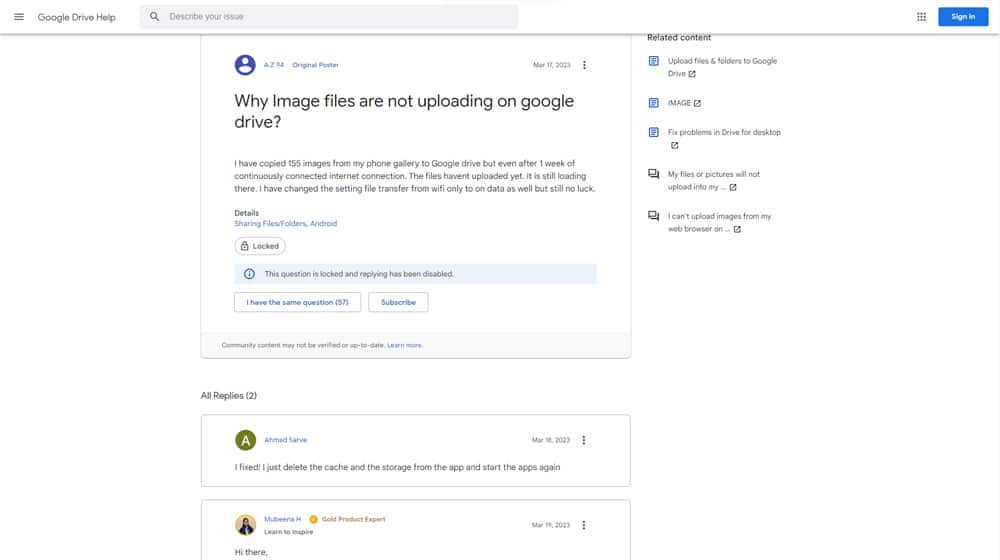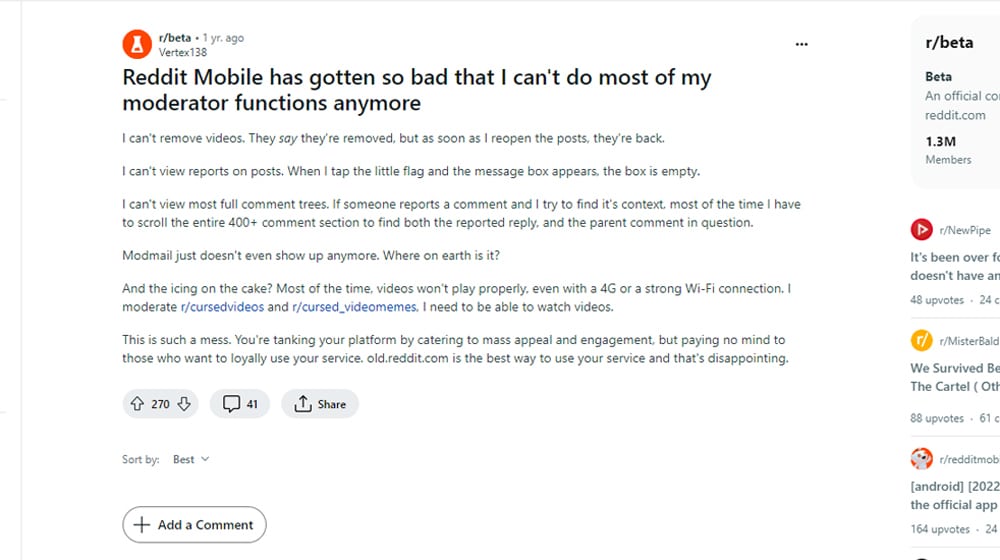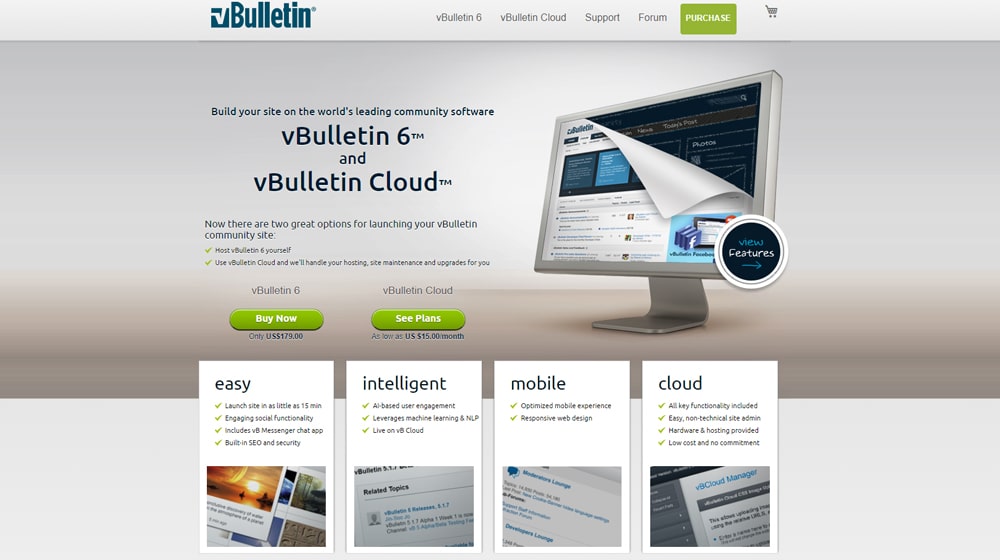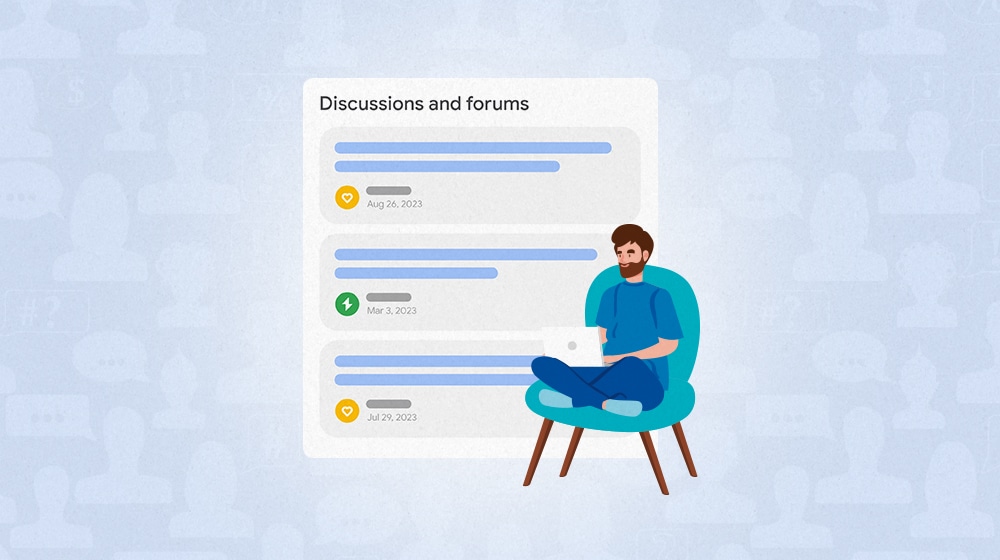Forums and SEO: Strategies, Pros, Cons, Options and More

Old-time internet citizens remember a time when blogs were a relative rarity, social media wasn't a thing yet, and the societies built were centered around web forums. Whether it was a Usenet ring, a free forum hosted on Invisionfree, or someone setting up their own servers with phpBB or vBulletin, these – alongside ICQ, AIM, and MSN Messenger chatrooms – were the beating heart of the internet. Everything else was just too static, too inconsistent.
Things changed, and the era of the forum was left behind when social media sites like Myspace and Facebook took off, and the constant press of content meant that something more static and slower, like a blog, was sought after. These days, relatively few traditional forums still exist, and they tend to be centered around specific topics, like Warrior Forum for digital marketing, Bodybuilding.com for health and fitness, or gamified forums like Gaia Online.
Well, and Reddit.
Many people don't necessarily think of Reddit as a web forum. The threaded response-chain format is very different from a traditional web forum; there's no central index page (just a curated feed and trending topics), and it's much less centrally regulated. It's more like every individual subreddit is a web forum, all under one central banner.
As many of you know, search quality has been going down the tubes recently. Search results have been getting tangibly worse, so much so that the idea of adding "site:reddit.com" or just appending "Reddit" to a query to get useful results is a meme as much as a practice.
What you may have noticed recently is that, for many queries, Google has started doing that for you. Not in the "Reddit is a huge site so it shows up in search frequently" sense, but in the sense that they have now added an infobox with "Discussions and forums" results, usually populated with Reddit and Quora results, but also results from other discussion boards like StackExchange.
This isn't actually new – it's been around since September 2022:
But, it's been getting a lot more attention recently.
Can You Get a Forum in the Discussions and Forums Box?
First, the question many of you are probably asking is: Can you even get your site into the discussions and forums box?
The answer here is… maybe. Truthfully, I think it's a long shot.
Why? In almost every query I try, if the box exists at all (and it doesn't for many queries), the results are 100% either Reddit, Quora, or both. Only very rarely are there other forums, and in pretty much every case, it's a car-specific discussion forum for a car query. Meanwhile, I've tried bodybuilding questions, and the bodybuilding forum is left out, I've tried car-specific questions that I know have dedicated forums for and they haven't appeared, and so on.
Now, that's not to say those forums aren't represented. In fact, in all of those cases, the actual forum I expected to see is the #1 organic result.

Here's what I think is happening. I think Google is using the discussions and forums box as a way to quarantine Reddit and Quora results, as well as a few occasional others, to make it seem less like that's the case. That way, the organic results can have a better spread of non-Reddit, non-Quora results.
Truthfully, I don't think you want to be in that box. I think that box exists to make the rest of the results less flooded with Quora's AI-generated answers and Reddit's whole everything.
That said, having a forum might still be beneficial because that forum can potentially rank well under organic results, even if it doesn't appear in the discussions and forums box.
What Are the Benefits of Hosting a Forum?
Now, with that out of the way, let's talk about the potential benefits you can have with hosting a forum for your site.
First of all, it can be an immense amount of content attached to your domain. Every discussion, every question being answered, and every keyword mentioned is something that Google can now associate with your domain. It's like blog comments on steroids and given slightly more impact than comments, though not a lot, depending on the forum.
Forums aren't necessarily there to get backlinks, but they can do a lot for organic rankings in terms of the number of ranking pages, number of keywords, and other metrics.
You can also use forums as a community, with all that entails. You can use that community as a focus group to test features for a product or solicit feature requests. You can monitor their discussions and use them as inspiration for your blog posts. You can simply network with the people who join your forum, making friends and connections with people. It's similar to the kinds of benefits you get from running your own dedicated subreddit, Facebook page or group, or LinkedIn group.
All of this can help humanize your brand. If you have a handful of employees simply using the forum – and if you have off-topic, media, or general discussions they can participate in as well as just company-focused and sanitized topics – you become much more of a group of people working together than a faceless company.
You can also use a discussion forum for customer support. Not only can you outsource some element of support to your power users (like Google, Microsoft, and Facebook all do with their support forums), but you can build it into a knowledge base that is easily searchable both with a site search and with Google.

On top of that, you can monetize web forums. One of the most infamous examples is Something Awful, which has a large portion of the site (including the ability to post at all) locked behind a paywall, forcing users to purchase accounts, along with monetizing things like account avatars. There are certainly exclusive groups and forums out there today that sell "be part of our community," too.
There are other ways to monetize as well. Allow people to pay to bling out their usernames. Run ads and allow people to pay to remove them. You can even attach the forum to a merch store or make it a forum for customers who purchase your product.
On a more technical side, Google also has a set of Schema markup tags you can use for discussion forums, and as we all know, Schema markup can be very valuable.
What Are the Drawbacks of Hosting a Forum?
Broadly, you can divide the drawbacks of hosting a forum into two groups: technical and temporal.
Forums are also frequently not designed to work well with mobile devices. Even "forums" like Reddit heavily promote their app over a web version. This has the potential to alienate a lot of users if your mobile compatibility is low or missing.

Another consideration is how you run the forums. Many site forums run on a subdomain (that is, site.forum.com), which is easier to administrate but can cause issues with SEO between the subdomain and the main domain. I have a rundown of the pros and cons of putting a blog on a subdomain here, and most of the same things apply to putting a forum on a subdomain.
Temporally, spam is also a concern. You're going to spend a lot of time reviewing and administrating your forum, especially as it grows and gets more and more active. It's also not just about spam but also undesirable content (like the Nazi Bar Problem), people who skirt the line and never break the rules but still harass and make the forum a worse place, and so on. Moderating a forum is a ton of work. Many large forums even pay a moderation team to keep an eye on it.
If you're going to use a forum for any of the benefits above, you're going to need to spend time personally interacting with and posting alongside the people there, as well. You don't build a community without being part of the community, after all.
Finally, forums and communities are hard to get rolling and hard to maintain. If your blog doesn't get many comments and your social media posts don't get much engagement, your forum will also not get much attention. Worse, people don't like to join boards that don't have activity. It takes a lot of investment and a decent amount of luck to build momentum on a web forum.
How to Add a Web Forum to Your Site
If you've decided that you want to add a web forum to your site, there are a few different ways you can do it.
Use a WordPress plugin. Discussion Board for WP is a functional discussion board plugin that can get you most of the way there. You still need to have other plugins in place to do things like protect against spam, and you don't have many of the more customizable features of a stand-alone forum, but it's a lot easier to administrate when all the controls are there in your WordPress dashboard rather than a separate forum admin page.
Similarly, bbPress was developed by the same people who made WordPress, and it's a WordPress plugin, so you know compatibility will be great.
Use a stand-alone forum system. There are several of these on the market, including vBulletin, phpBB, and XenForo. These all have their own pros and cons, limitations, methods of installation and administration, and availability of additional features. If you want me to dig into the different options in greater detail, let me know in the comments; for now, I'm just presenting them.

These are much more robust boards but end up being an entirely separate system adjacent to WordPress on your domain, so you're doubling both your attack surface and your administrative burden. If that's a good trade-off for you, that's fine; otherwise, stick with a WordPress plugin.
Use a stand-alone board. These options allow you to run a free web forum, but they're usually off on their own domains. Often, you can pay to use your own custom domain, but you'll probably be stuck using a subdomain instead of a subfolder. You're also a lot more limited on what you can do to the back-end infrastructure; think of it like the WordPress.com of web forums. Options here include Tapatalk and ProBoards.
Should You Add a Forum to Your Site?
At the end of the day, this is up to you. I think there may be a role for them, especially for larger sites, and doubly so for sites with social media groups and thriving comment sections who might want to move away from the control of a site like Facebook or LinkedIn and centralize their community.
Just be prepared to put the effort into it. Forums are hard to get rolling and easy to let collapse, especially if spam slips in. You'll need security plugins and proactive maintenance, active moderation, and a community that can seed discussions and keep participation rolling when it's new. Yes, you might even need to astroturf your initial community until a more organic community grows.

If you want to add – or have already added – a forum to your site, let me know how it goes! I'm curious how much real-world value can come from a forum. It's not something I've experimented with all that much, but if it becomes a viable SEO and marketing strategy, it might be something I start to recommend.










Comments